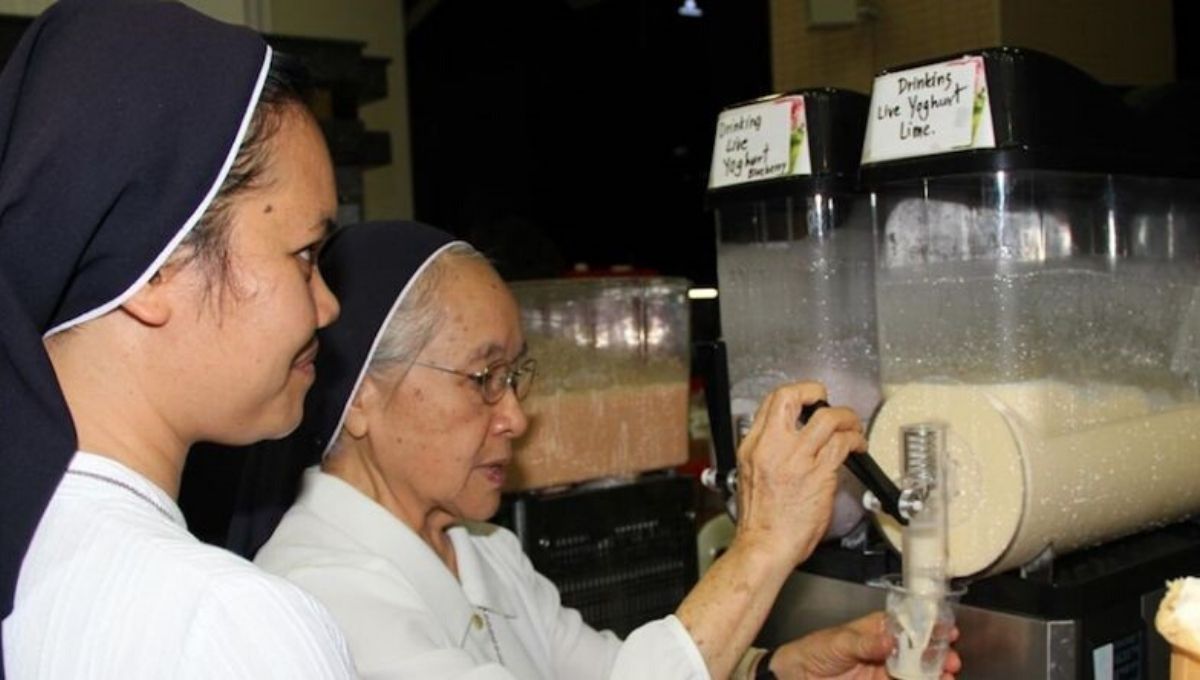
Sister Jantana Wongsankakorn, an Ursuline Sister of Thailand, worked in the financial sector for 10 years. Inspired by the simplicity of religious life, she joined the congregation in Bangkok. After biblical studies in India, Mandarin courses in Taiwan and a tertianship in Rome, she ministered as a catechist and a member of the national chaplain team, then as a missionary in Cambodia. Now, she is a member of an Asian Pacific chaplain team and teaches mathematics at the Ursuline school in Bangkok.
 In Thai culture, a funeral is one of the most important events in a family. From visiting the dying person through the time of burial, a funeral shows the relationship between the living and the one who left the world.
In Thai culture, a funeral is one of the most important events in a family. From visiting the dying person through the time of burial, a funeral shows the relationship between the living and the one who left the world.
Most of the population in Thailand is Buddhist. A Buddhist funeral consists of a bathing ceremony, daily chanting by a monk, and cremation. The Thai Catholic funeral is similar. A simple ritual is performed when the body is placed in the casket before being moved to the church. A wake usually involves three days of evening prayers, but it may last up to seven days, as the family wishes.
Our Ursuline sisters' wakes and funerals are very simple, with Mass, a homily and the presentation of "biography boards," with stories and pictures of the sister and her missions. Hundreds of students might come to the wake, especially for missionaries who served more than 50 years in Thailand. Even students who graduated years ago feel a big loss, for they have felt bonded with the sisters since their childhood.
Sr. Francis Xavier Bell's wake was a little unusual. Most of the visitors were surprised to find coffee and a variety of milk, yogurt and ice cream after the liturgy and eulogy. Why ice cream at a funeral?
Bell arrived in Thailand from Brooklyn, New York, in January 1953 to begin serving as a teacher in four Ursuline schools and in religious formation. In 1974, she went to the Ratchaburi Diocese (four hours away from Bangkok) to do social development, later moving to a remote village down a bad gravel road 17 kilometers from any town. The village was on a big piece of land surrounded by wild animals; the soil and water were not good enough for agriculture but were good for grass. To help the villagers develop a sustainable community, she changed the obstacle into an opportunity by developing a dairy farm.
Sister Francis asked for help from Zonta International, the Canadian Embassy and other benefactors to support the project, beginning with 26 dairy cows, which gave 30 liters of milk a day. After a year, they invested in machinery to produce pasteurized milk under the brand name "Zonta." Sister Francis worked there for more than 14 years, training and sending the staff to study abroad. The project continues as a well-known cooperative.
Sister Francis died in 2013. During the five days of visitation, the villagers provided Zonta dairy products every day to show their gratitude. "One taste (of Zonta ice cream) is worth a thousand words!"
We're delighted to bring you this blog from the monthly feature "The Life" courtesy of our friends at Global Sisters Report. This month "The Life" panelists reflect on their congregation’s best practices around their sisters’ rituals for the dying, funerals and burial, and how these celebrations of life reflect the values of religious life in general. Click HERE to read more blogs from The Life, GSR's monthly feature about the unique, challenging and very specific lives of women religious around the world.

